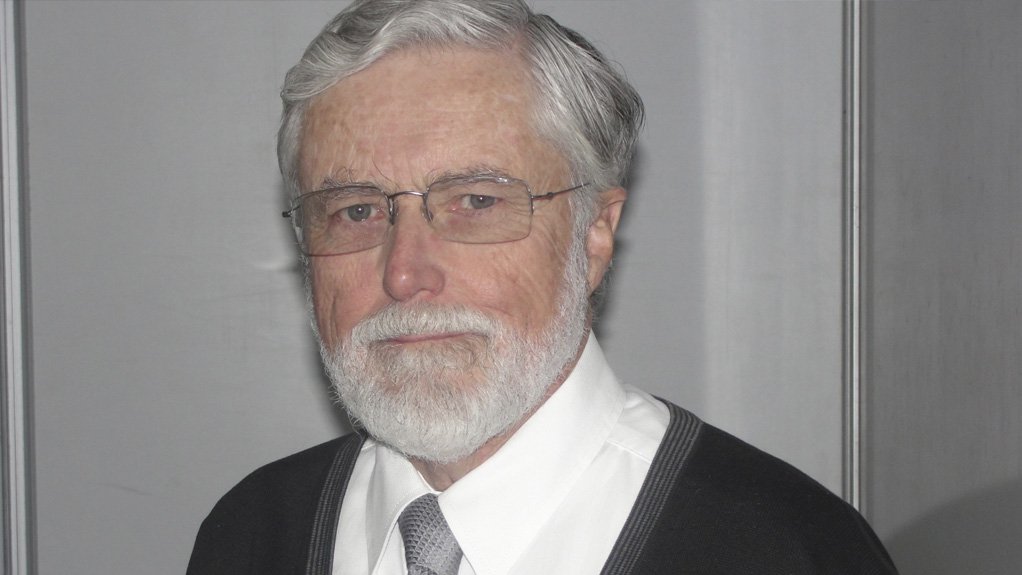Hydrogen essential for chemicals sector


IAN FRASER There are adequate, cost-effective solutions for generating high-volume hydrogen locally available
With its range of industrial uses and applications, hydrogen is a very important molecule essential in many sectors such as chemicals, refining and metallurgical applications, as well as glass and electronics manufacturing.
When it comes to the bulk manufacturing of hydrogen, there are adequate, cost-effective solutions for generating high-volume hydrogen locally available.
“However, for the supply and storage of hydrogen, small- to medium-sized users have relied, for the most part, on gas in cylinders as a convenient and consistent means of generating high-purity hydrogen at smaller volumes on site has previously not been readily available,” says industrial problems solutions provider RTS Africa Engineering MD Ian Fraser.
RTS Africa, in collaboration with its long-term principal hydrogen company Nel Hydrogen, has been a leader in the supply of many of South Africa’s hydrogen electrolyser technology solutions for the past two decades.
Based in Norway, Nel Hydrogen is a world leader in the supply of conventional alkaline-based hydrogen electrolysis systems.
Fraser states that, in 2017, Nel Hydrogen bought US-based on-site hydrogen generators manufacturer Proton OnSite, which offers its advanced proton exchange membrane (PEM) electrolysis technology to various markets focusing on small- to medium-sized plants.
He adds that the acquisition of Proton OnSite fully complements Nel Hydrogen – in terms of technology and market outreach – providing a strong strategic fit for both companies. Fraser recently spent time with the company in the US to become fully conversant with its PEM technology and electrolyser solutions.
“A constraint with conventional alkaline electrolysers is that they only become economical when producing larger volumes of hydrogen in excess of some 60 m3 to 100 m3. It is possible to make smaller alkaline electrolysers but, at that scale, they are not economical,” he explains.
However, as PEM electrolysers employ a different technology to produce hydrogen, these units can be far more compact. For example, many small PEM electrolysers can be found serving in laboratories in the form of a bench-top supply of small-scale on-site hydrogen.
“Typically, these units would be supplying quantities of a couple of cubic centimetres,” Fraser points out, adding that PEM technology can also be used for much higher capacity electrolysers.
PEM electrolysis technology is both ingenious and simple. At the core of a PEM electrolyser is a proton exchange membrane. The conventional alkaline electrolysis process uses electricity to split water into hydrogen and oxygen. In a PEM electrolyser, however, water reacts at the anode to form oxygen and positively-charged hydrogen ions (protons).
The electrons flow through an external circuit and the hydrogen ions selectively move across the PEM to the cathode. At the cathode, hydrogen ions combine with electrons from the external circuit to form hydrogen gas.
While the origins of PEM electrolysis technology can be traced back to the 1950s, the company Proton OnSite was founded in 1996. Among other achievements, the company was instrumental in the development of PEM electrolysers for use in nuclear submarines, where a reliable, risk-free supply of clean, consistent-quality hydrogen was essential.
Fraser points out that PEM electrolysers – when using ‘clean’ energy – are completely environment-friendly, as they use only electricity and demineralised water in the process. The fact that it is possible to have a smaller volume electrolyser, which does not need an alkaline electrolyte is in certain instances also an advantage.
A Nel Proton PEM electrolyser can be used in the chemicals industry, for example, in plants making furfural alcohol or hydrogen peroxide to name just two products. The company also supplies hydrogen to power stations and annealing plants.
The smaller units also have an application in research institutions and universities where laboratories might need a reliable on-demand supply of ultrahigh-purity hydrogen.
“At RTS Africa, we are very excited to partner with our principal Nel Hydrogen in marketing this versatile new product to Southern African industry,” says Fraser.
He concludes that Nel Proton’s PEM electrolysers make a valuable contribution to the range of electrolyser options available to clients, and innovatively fill what has long been a gap in the local hydrogen generation market.
Article Enquiry
Email Article
Save Article
Feedback
To advertise email advertising@creamermedia.co.za or click here
Press Office
Announcements
What's On
Subscribe to improve your user experience...
Option 1 (equivalent of R125 a month):
Receive a weekly copy of Creamer Media's Engineering News & Mining Weekly magazine
(print copy for those in South Africa and e-magazine for those outside of South Africa)
Receive daily email newsletters
Access to full search results
Access archive of magazine back copies
Access to Projects in Progress
Access to ONE Research Report of your choice in PDF format
Option 2 (equivalent of R375 a month):
All benefits from Option 1
PLUS
Access to Creamer Media's Research Channel Africa for ALL Research Reports, in PDF format, on various industrial and mining sectors
including Electricity; Water; Energy Transition; Hydrogen; Roads, Rail and Ports; Coal; Gold; Platinum; Battery Metals; etc.
Already a subscriber?
Forgotten your password?
Receive weekly copy of Creamer Media's Engineering News & Mining Weekly magazine (print copy for those in South Africa and e-magazine for those outside of South Africa)
➕
Recieve daily email newsletters
➕
Access to full search results
➕
Access archive of magazine back copies
➕
Access to Projects in Progress
➕
Access to ONE Research Report of your choice in PDF format
RESEARCH CHANNEL AFRICA
R4500 (equivalent of R375 a month)
SUBSCRIBEAll benefits from Option 1
➕
Access to Creamer Media's Research Channel Africa for ALL Research Reports on various industrial and mining sectors, in PDF format, including on:
Electricity
➕
Water
➕
Energy Transition
➕
Hydrogen
➕
Roads, Rail and Ports
➕
Coal
➕
Gold
➕
Platinum
➕
Battery Metals
➕
etc.
Receive all benefits from Option 1 or Option 2 delivered to numerous people at your company
➕
Multiple User names and Passwords for simultaneous log-ins
➕
Intranet integration access to all in your organisation



















